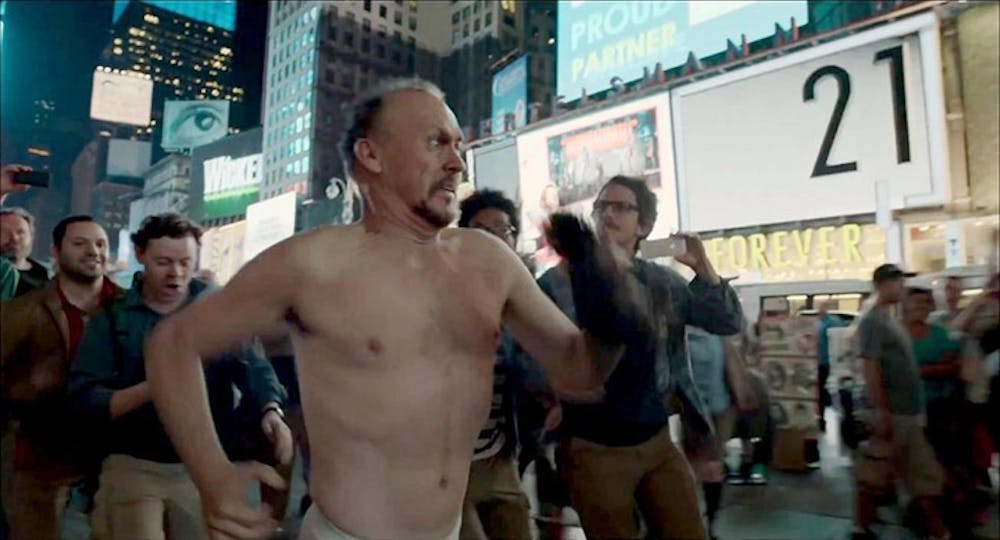It's been 22 years since he last donned the dark mask in “Batman Returns,” and now Michael Keaton is getting meta in Alejandro González Iñárritu’s dark new comedy.
Keaton plays Riggan Thomson — an actor who used to be famous for his superhero character Birdman. He doesn’t like where his career is now, and to prove that he’s still relevant, he directs and stars in a play about to open on Broadway. That's when his obsession to regain fame takes him down a dark path.
From the beginning of the film onwards, Riggan asks himself how he got to where he is now. The complicated relationships he has with family members and coworkers makes his struggle so compelling — he and his daughter Sam, played by Emma Stone, don’t understand each other because they’ve never given each other their time. Thus, they remain at constant odds.
The newcomer to the play Mike Shiner, played by Edward Norton, challenges everything that Riggan does. Norton plays the archetypal method actor who doesn’t hold anything back. The two clash egos and butt heads consistently.
Riggan fights an internal battle with his alter ego, Birdman. His former movie greatness haunts him in the form of a controlling voice inside his head. That voice is just another reason why he can’t let go of the past.
This internal battle helps the viewer understand Riggan better. Birdman is ironically portrayed as a hero to the public but to Riggan, he’s the villain.
Keaton’s portrayal of Riggan is splendid. People close to him think he’s having a midlife crisis, but the depth to his character shows there’s something more. He holds on to the past to the point of delusion. He starts to hallucinate and blurs the lines between reality and fantasy. Even in his fantasy state, Keaton seems believable, making the audience wonder when exactly his real life turns to fantasy.
Keaton’s acting is mesmerizing because he plays both antagonist and protagonist. At times, he’s vulnerable and tries to fix his life, but the extremes he takes create his own darkness. His pursuit for relevance harms close relationships and the play that he’s worked so hard on.
His character is complicated and does things without thinking them through. He’s either living in the past or looking down on his current life.
The film takes the viewer on a ride with Riggan’s ups and downs. His unpredictable character keeps the viewers on edge. Both the plot and camera angles move wrenchingly throughout.
Even though his career is a mess, Riggan still has the motivation to do better. Keaton’s portrayal identifies ambition as that which drives the character both up and down. The play is his last chance for a comeback. What makes Riggan so interesting is that even though his close relationships aren’t great, he can survive off an unhealthy obsession with his career.
This film focuses on what goes on behind the scenes in the entertainment industry, and it ultimately shows the costs of the quest for artistic relevance.
It poses a question: can an artist truly keep their career going for a long time or do they eventually just fade out?


